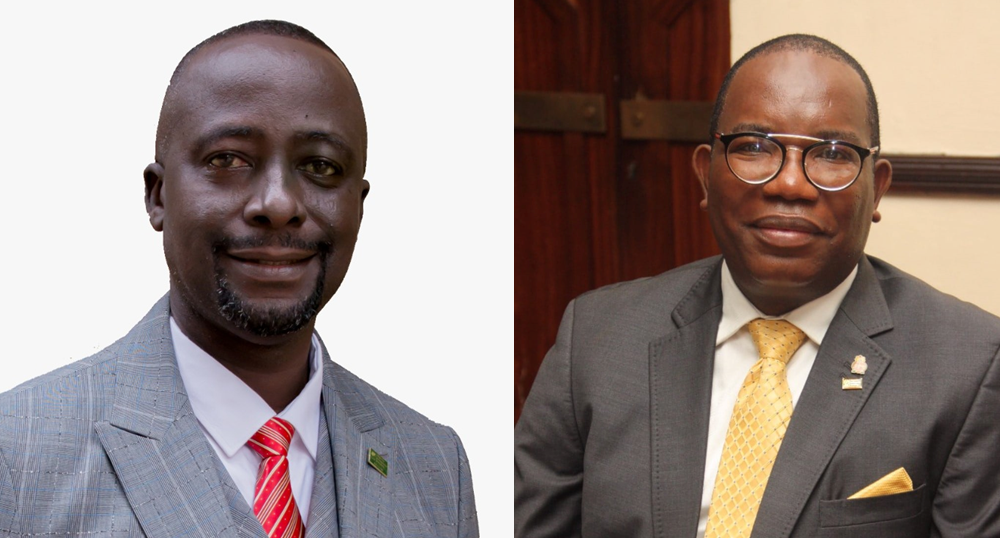The Computer Professionals (Registration Council of Nigeria) (CPN) representing, the Defence Headquarters (DHQ), the Nigeria Computer Society (NCS), Office of the National Security Adviser (ONSA), the Nigeria Communications Commission (NCC) and other forward-looking stakeholders have opposing the proposed Chartered Institute of Computer Forensics of Nigeria (CICFON) Bill, TechEconomy.ng can report.
Recall that the House of Representative Committee on Science and Technology recently organized a Public Hearing on the CICFON Bill 2021 sponsored by John Dyegh, member representing Gboko/Tarka federal constituency of Benue State.
The Federal Ministry of Science, Technology, and Innovation (FMSTI) opened the flow with a presentation favouring the bill for the establishment of the Chartered Institute of Computer Forensics of Nigeria.
Other organisations like Nigeria Immigration Service, the Economic and Financial Crimes Commission (EFCC), and the Nigeria Police Force also supported.
In contrast, the Computer Professionals (Registration Council of Nigeria) (CPN) and the Nigeria Computer Society (NCS),pointed the lacunas in the proposed Bill.
However, information available to TechEconomy.ng indicates that the Federal Ministry of Communications and Digital Economy and the National IT Development Agency (NITDA) were conspicuously absent at the public hearing.
When contacted, the Professor Adesina Sodiya, president, Nigeria Computer Society (NCS) told TechEconomy.ng that they are opposed to the Bill following irregularities and duplications of duties are contained in the draft Bill.
He said, “On our part, our submission was based on the memo earlier submitted to the committee by the NCS through the Executive Secretary and others additional issues.
Sodiya listed some of the issues in the Bill as include:
“The bill includes two companies not licensed by CPN and NITDA lead as certification bodies, which violate existing laws of the Federal Republic of Nigeria.
“A look at the proposed CICFON Bill 2021 shows that most of the items contained in Section (1) are intellectual theft from the CPN Decree and other existing Acts.
“The bill’s passage will also increase the number of government agencies when the FGN is considering revisiting the Orosanye Panel Report, which recommended the pruning, merging, and abolishing of Federal Government Agencies. The panel had recommended pruning agencies from 263 to 161, abolishing 38 and merging 52 others”.
He said that NCS working with the CPN has drew the committee’s attention to seven (7) other bills in the national assembly related to the CICFON bill as they have some forensic content.
These are:
- HB 1491 – Chartered Institute of Computer Forensics of Nigeria (Est.) Bill 2021
- SB 650: Chartered Institute of Computer Forensics of Nigeria (Est.) Bill 2021
- SB 790: Chartered Institute of Forensic and Certified Fraud Analyst Bill 2021
- HB 791: Chartered Institute of Forensic and Investigative Professionals (Est.) Bill 2020
- SB 615: Chartered Institute of Forensic and Investigative Professionals of Nigeria (Est.) Bill 2021
- SB 1220: Chartered Institute of Forensic and Certified Fraud Examiners of Nigeria (Est.) Bill 2021
- SB 778: Federal Bureau of Forensic Services Regulation (Est.) Bill 2021
- SB 52: Private Security and Forensic Investigation Bureau of Nigeria (Est. etc.) Bill 2019
5) That 17 out of 22 sections are duplications of various Acts like the National Cybercrime and the Data Protection Acts, as pointed out by the DHQ and the ONSA.
He further said that lots of the sections of the proposed bill also contravene the National Communications Acts, amongst others.
In his response, a member of the House Committee on S&T, Adedeji Stanley Olajide said the submission so far shows that the bill’s sponsor still has a lot to do as the current proposal doesn’t meet the adequacy for law.
On his part, Abdullahi Sa’ad Abdulkadir assures all present that the committee in concluding on the bill, will consider whether or not the bill duplicates existing laws; the gaps as noted by presenters should be expanded or expunged and whether or not National Security is breached.
